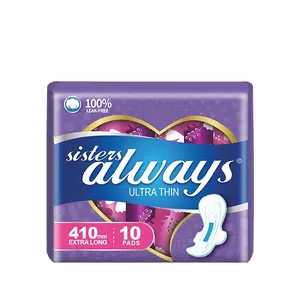
All categories
Featured selections
Trade Assurance
Buyer Central
Help Center
Get the app
Become a supplier

(4077 products available)






















































sanitary pads design are essential products in the realm of feminine care, designed to provide comfort and protection during menstruation. These products are crafted from soft, absorbent materials that offer reliability and ease of use. Available in various shapes and sizes, sanitary pads design ensure that individuals can select the option that best suits their needs. With innovations focusing on enhancing comfort and reducing environmental impact, sanitary pads design continue to evolve, offering better solutions for personal care. As awareness and demand for sustainable options grow, manufacturers are introducing eco-friendly alternatives, making sanitary pads design an integral part of conscientious consumerism.
The variety of sanitary pads design available in the market is extensive, catering to different preferences and needs. Common types include ultra-thin, overnight, and organic sanitary napkins. Ultra-thin sanitary pads design are designed for discretion and comfort, offering effective absorption without bulkiness. Overnight options are tailored to provide extra protection during sleep, featuring enhanced absorbency and larger sizes. Organic sanitary pads design are crafted from natural materials, free from synthetic chemicals, appealing to those seeking environmentally friendly products. Each type of sanitary pads design is engineered to meet specific requirements, ensuring optimal performance and comfort for users.
sanitary pads design serve crucial functions, offering protection and comfort during menstruation. Key features include absorbent cores, adhesive wings, and breathable layers. The absorbent core of sanitary pads design efficiently captures moisture, preventing leaks and ensuring dryness. Adhesive wings help secure the napkin in place, providing stability and reducing movement. Breathable layers enhance comfort, allowing air circulation to minimize irritation and maintain freshness. These features make sanitary pads design indispensable in feminine care, addressing the diverse needs of users and enhancing their overall experience.
The production of sanitary pads design involves the use of various materials and ingredients, each contributing to the product's effectiveness and comfort. Common materials include cotton, rayon, and superabsorbent polymers. Cotton offers softness and breathability, ensuring comfort during wear. Rayon provides absorbency and durability, enhancing the napkin's performance. Superabsorbent polymers are incorporated to increase the napkin's capacity to retain moisture, preventing leaks. As sustainability becomes a priority, biodegradable materials are being explored to reduce environmental impact, offering eco-conscious options for users of sanitary pads design.
Using sanitary pads design effectively involves understanding their features and selecting the appropriate type based on individual needs. For optimal use, choose sanitary pads design with the right absorbency level according to menstrual flow. Secure the napkin using its adhesive wings to prevent shifting and ensure comfort. Regularly change sanitary pads design to maintain hygiene and prevent irritation. Proper disposal is crucial for minimizing environmental impact, with biodegradable options offering a sustainable choice. Educating individuals on the benefits of eco-friendly sanitary pads design can contribute to a more sustainable future in feminine care.
When selecting sanitary pads design, it's important to consider factors such as absorbency, size, and material composition to ensure the best fit for individual needs. Absorbency levels are crucial, as they dictate how much fluid the napkin can handle. Higher absorbency sanitary pads design are suitable for heavy flow days, while lighter options work well for the beginning or end of a menstrual cycle. The size and shape of sanitary pads design also play a role in comfort and protection. Larger sizes may offer better coverage, particularly during nighttime use, whereas smaller ones provide discretion and ease of movement. Materials used in sanitary pads design, such as cotton or synthetic fibers, affect breathability and comfort, with organic options gaining popularity for those seeking natural alternatives.
Organic sanitary pads design are made from natural materials that are free from synthetic chemicals and pesticides, offering a more environmentally friendly and skin-sensitive choice. Conventional options may include artificial components that can irritate sensitive skin. Choosing organic sanitary pads design can reduce exposure to potentially harmful substances while promoting sustainability.
Yes, there are sanitary pads design specifically designed for overnight use. These products typically feature enhanced absorbency and larger sizes to provide extra protection during sleep, minimizing the risk of leaks and ensuring comfort throughout the night. Their design caters to the unique needs of individuals requiring extended coverage during longer wear periods.
Disposing of sanitary pads design responsibly involves using designated sanitary waste bins or wrapping them in paper before discarding them in regular trash. Some areas offer specialized disposal systems for sanitary products. Opting for biodegradable sanitary pads design can further minimize environmental impact, as they break down more easily than conventional options.
Individuals with sensitive skin should choose sanitary pads design made from hypoallergenic materials, such as organic cotton, to prevent irritation and discomfort. It's advisable to avoid products with fragrances or synthetic additives, as these can exacerbate skin sensitivity. Testing different types of sanitary pads design can help determine the most suitable option for personal comfort and health.
When selecting sanitary pads design for travel, consider compact packaging and high absorbency to ensure convenience and protection. Travel-friendly options often feature individually wrapped napkins for easy transport and discreet disposal. It's also beneficial to choose sanitary pads design that are versatile, catering to different flow levels and providing comfort during varied activities.